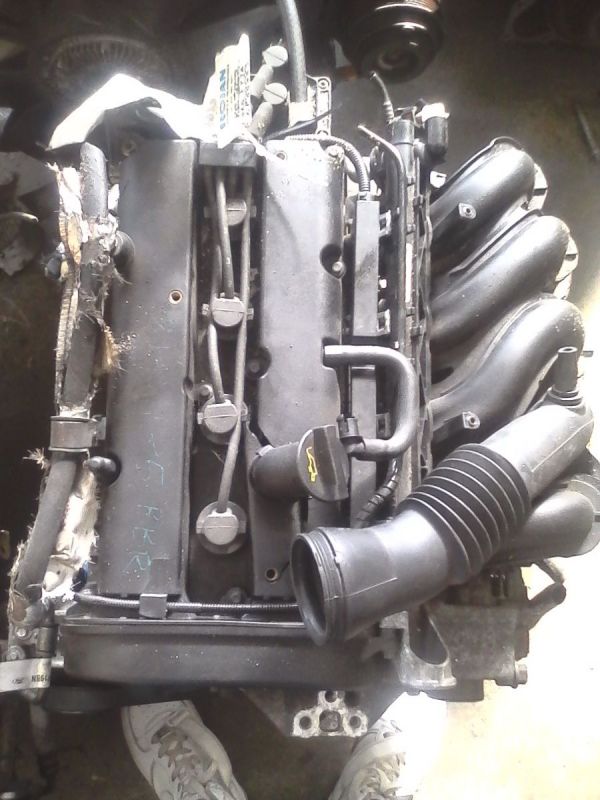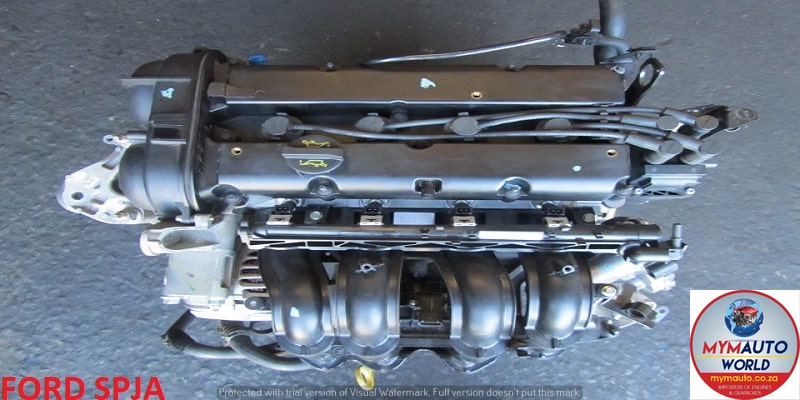Exploring the Benefits of a High-Performance Ford Fiesta Engine
Exploring the Benefits of a High-Performance Ford Fiesta Engine
Blog Article
Unlocking the Power of Engines: A Comprehensive Overview to Performance and Effectiveness
Comprehending the detailed technicians of engines is crucial for both performance enthusiasts and everyday chauffeurs. The responses might redefine our technique to engine efficiency and effectiveness in methods that are both informing and necessary.
Understanding Engine Basics
What makes up the fundamental technicians of an engine? At its core, an engine is an equipment created to convert fuel right into mechanical energy through a collection of controlled explosions or burning processes.
The crankshaft then changes this linear motion into rotational power, which inevitably powers the car. The camshaft controls the opening and closing of the shutoffs, controling the intake of air and gas and the expulsion of exhaust gases. Furthermore, the engine relies on a very carefully calibrated fuel-air combination, ignition system, and cooling system to ensure ideal performance and effectiveness.
Understanding engine essentials likewise entails acknowledging the significance of engine cycles, such as the four-stroke cycle, which consists of intake, exhaust, compression, and power strokes. Each stage is crucial in ensuring the engine operates smoothly and properly. Mastery of these basic technicians lays the groundwork for discovering more intricate engine dynamics and efficiency metrics, important for maximizing both power output and performance.
Secret Performance Metrics
Trick performance metrics are essential for assessing an engine's efficiency and power result, supplying important insights for both customers and manufacturers. These metrics work as criteria for engine efficiency, enabling informed decisions in style, production, and buying.
Among the key metrics is horse power, which evaluates the engine's capacity to perform work over time. Torque, measured in pound-feet, is another important statistics that shows the engine's rotational pressure, straight influencing velocity and lugging capacity. Fuel efficiency, generally measured in miles per gallon (MPG) or liters per 100 kilometers (L/100km), evaluates how efficiently the engine converts gas into activity, influencing functional expenses and environmental considerations.
Furthermore, thermal efficiency steps how well an engine transforms gas energy into useful job, exposing insights right into power losses mostly through heat. Exhaust levels, including carbon dioxide and NOx, are likewise important, showing the engine's environmental influence and conformity with regulatory standards.

Tuning Techniques for Effectiveness
Tuning methods play a substantial duty in boosting engine performance by optimizing performance metrics identified in earlier discussions (ford fiesta engine). Various methods exist to tweak an engine, each contributing to enhanced fuel economic situation and lowered exhausts
One reliable strategy is readjusting the air-fuel proportion, making use this link certain the engine runs within the optimum burning routine. A leaner blend can boost gas effectiveness, however it should be balanced to stop misfires or engine knock. Additionally, reprogramming the engine management system can recalibrate parameters such as ignition timing, which further improves effectiveness while maintaining power output.
Another crucial approach includes customizing the consumption and exhaust systems. Updating to high-performance air filters and exhaust headers can minimize back stress, assisting in much better airflow. This allows the engine to breathe even more easily, causing enhanced burning effectiveness.
Additionally, the implementation of innovative tuning tools, like dyno screening, offers precise information that allows targeted adjustments. Frequently keeping track of these efficiency metrics makes sure that tuning initiatives yield the wanted effectiveness outcomes. Jointly, these methods not only strengthen engine performance but likewise add to lasting sustainability in engine operations.
Maintenance for Optimum Efficiency
Routine engine upkeep is necessary for attaining ideal efficiency and durability. A well-maintained engine not just runs efficiently but likewise reduces the threat of expensive repair work and break downs. Key components calling for routine attention include oil, filters, belts, and ignition system.
Altering the engine oil at suggested intervals is vital, as oil lubes relocating components and stops overheating. Replacing oil and air filters makes sure that impurities do not harm engine function. Overlooking these elements can bring about reduced efficiency and prospective engine damages.
In addition, evaluating and replacing worn belts and hose pipes is crucial to protect against sudden failures. Timing belts, specifically, ought to be replaced according to the index maker's routine to stay clear of tragic engine damages.
Spark plugs should also be checked and replaced as necessary, because they play a critical duty in ignition and gas performance.
Future Trends in Engine Modern Technology
Embracing developments in innovation, the future of engine design is poised to revolutionize performance and performance throughout numerous applications. Among the most significant trends is the change towards electrification. Crossbreed and completely electric powertrains are becoming significantly conventional, using minimized discharges and enhanced gas performance. This change is not just a fad however a requirement driven by regulative pressures and customer demand for sustainable remedies.
Furthermore, advancements in materials science are leading to lighter, stronger components that improve engine efficiency while lowering energy consumption. Advanced manufacturing strategies, such as 3D printing, enable the development of intricate geometries that boost air movement and thermal monitoring, hence enhancing burning processes.
Furthermore, the assimilation of man-made knowledge and device understanding is set to change engine diagnostics and efficiency tuning. These innovations can assess large quantities of information in real time, allowing predictive maintenance and customized efficiency enhancements.
Final Thought
To conclude, unlocking the power of engines requires a thorough understanding of their auto mechanics and efficiency metrics. Applying effective tuning methods and sticking to routine upkeep techniques significantly enhance engine abilities. As the vehicle landscape advances, embracing future trends in innovation, including electrification and progressed production, will certainly be crucial for optimizing performance and efficiency. the original source This extensive technique not just advantages lovers yet additionally adds to lasting solutions in the realm of automotive engineering.
Furthermore, the engine depends on a thoroughly calibrated fuel-air mixture, ignition system, and cooling down system to make sure optimal efficiency and effectiveness.
Comprehending engine basics additionally includes identifying the relevance of engine cycles, such as the four-stroke cycle, which consists of consumption, exhaust, power, and compression strokes. Proficiency of these fundamental technicians lays the groundwork for discovering much more intricate engine dynamics and efficiency metrics, vital for optimizing both power outcome and performance.

Accepting improvements in modern technology, the future of engine layout is positioned to reinvent efficiency and effectiveness across different applications.
Report this page